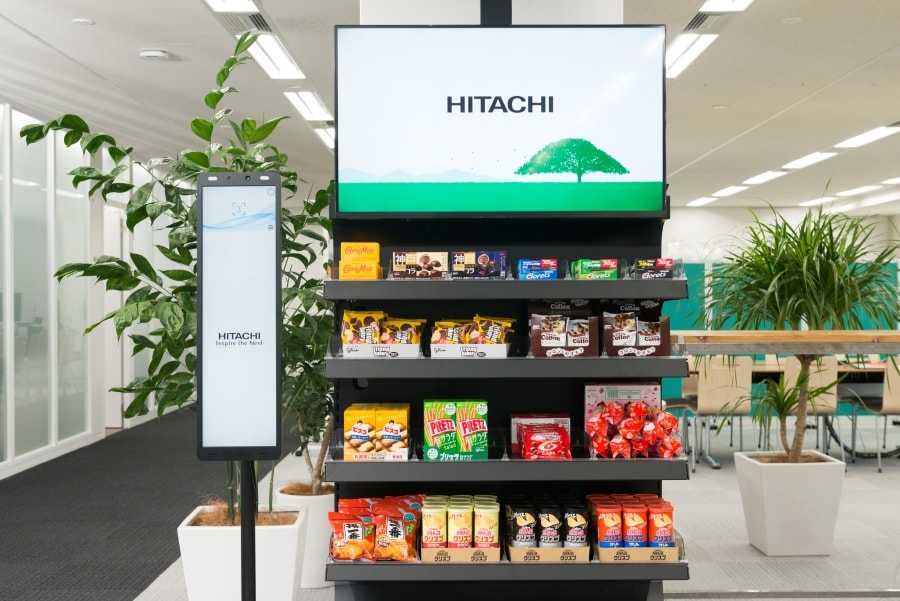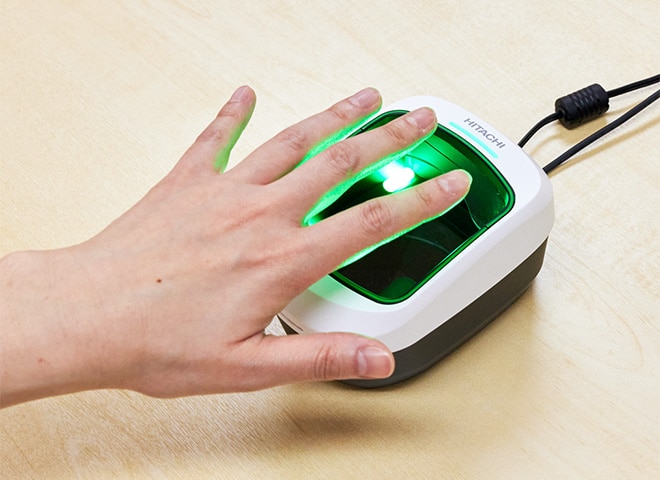Hotel Check-in with your fingers: Smart check-in accelerates Digital Transformation in the hospitality industry
May. 19, 2022
Atsushi Fukuchi
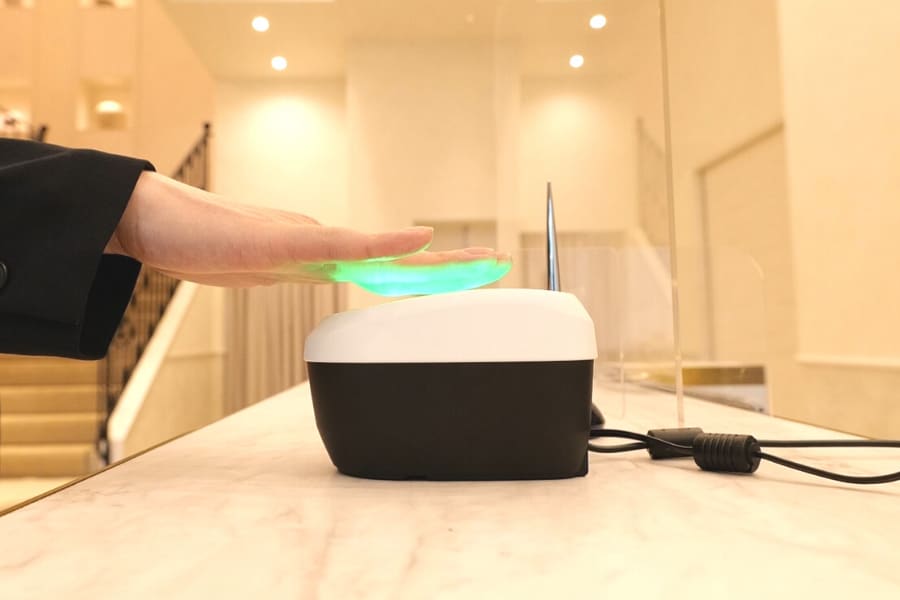
On March 14, 2022, Hitachi, Ltd. announced that it has conducted proof of concept of a new system that enables smart check-in for accommodations and other facilities by using digital identities and biometric authentication, which comprise digitalized information such as personal characteristics and certifications.
The new system makes it possible to present membership information and various types of certifications simply by holding one's fingers over C-1. In the previous month, proof of concept conducted at an urban hotel verified that the use of the system considerably decreased the amount of time required to complete check-in.
Expectations are high that the system will not only enhance user convenience but will also drive the advancement of the digital transformation (DX) of hotels and membership facilities.
Using DX to contribute to industries struggling under the COVID-19 pandemic
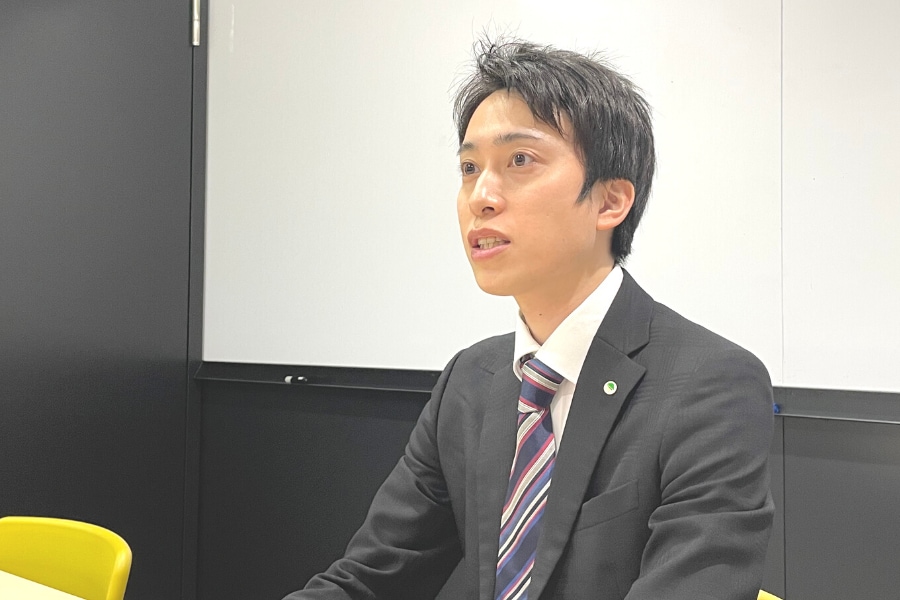
Due to the spread of COVID-19 infections, the hotel industry has experienced a drop in guests. To entice these lost customers back, an increasing number of hotels are offering plans that take into account user safety, such as “negative PCR test user plans” and “vaccinated user plans.”
When using such plans, however, it is usually necessary to present for confirmation negative test result certificates and certifications of vaccination, making the inconvenience and time required at check-in an issue.
To address this, Hitachi has built a system that, using digital identities and biometric authentication, enables the collective presentation of various certifications and their confirmation simply by holding one's fingers over a device during check-in.
Hitachi's Daisuke Kiyofuji, who leads the project, stresses that reducing reception times is advantageous not only for users but also for hotels. He said:
"I believe that by letting users do smart check-ins that require them to keep certificates on their person, and by reducing the confirmation work of hotel staff, this system confers benefits onto both."
Reducing check-in time by about 20%
Before using the system, users will need to pre-register their digital identity information, including vaccine and membership certifications, on the internet. Next, they can use C-1 installed at hotels and other facilities to register their finger veins and link their digital identities and biometric data.
Utilizing pre-registration like this will make the rest of the process very easy. During check-in, simply holding one’s fingers over C-1 installed at reception will then cause all necessary information, including vaccination status and hotel membership number, to be displayed on a hotel staff tablet.
Normally, customers must take the trouble of retrieving a paper certificate from their bag or briefcase or of launching a smartphone membership certificate app. This system eliminates any such inconveniences. The hotel staff benefits by being able to efficiently provide a variety of services, such as issuing coupons based on the on-screen validity of dates of vaccination and other certificates.
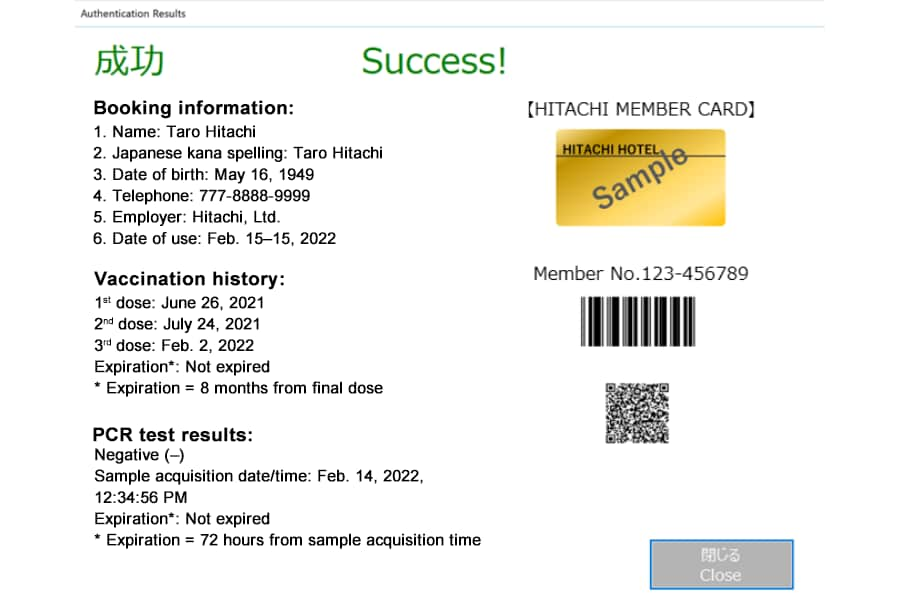
The results of proof of concept carried out at an urban hotel February 14–28, 2022, showed that the per-person check-in time was reduced by about 20% compared to regular check-in times.
Kiyofuji said: "The new system was able to shorten the time needed for check-in by over 40 seconds. And because it supports contactless check-in, the risk of COVID-19 infection also goes down."
Another feature is the use of Hitachi's patented technology known as "PBI" (Public Biometric Infrastructure) for biometric authentication. This technology provides robust protection of privacy by encrypting biometric information read by a scanner in a irreversible form so that even if there is a data leak, there is no danger of its malicious use.
Uniting technology and hospitality
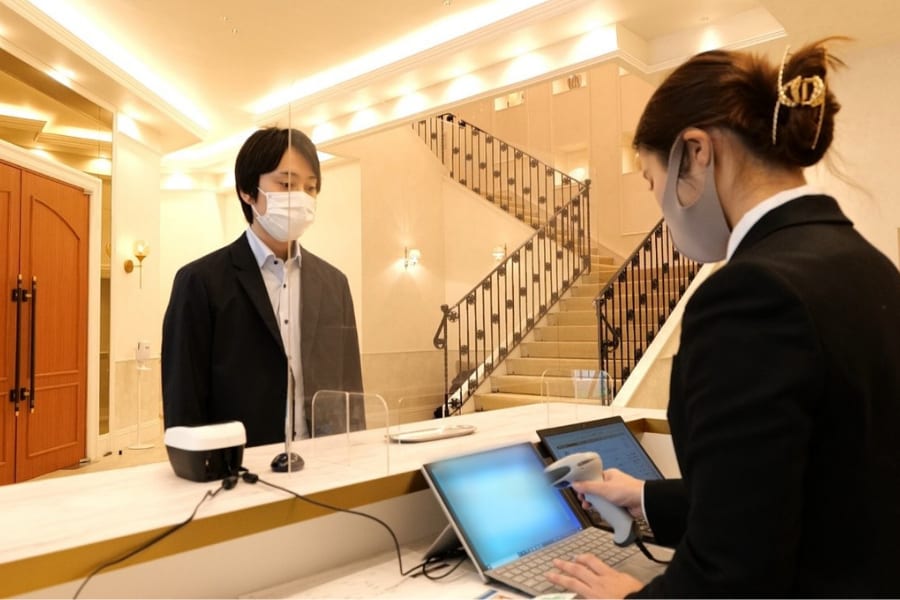
Concerning system development, Kiyofuji said that in addition to the technological side, "We also directed our efforts toward improving the UX, or user experience." His stated goal was to not only to solicit constant feedback from reception staff in order to improve work efficiency but also to create a user experience that was imbued with human warmth. Elaborating, he said:
"At first, I myself considered making reception completely unmanned. The hotel staff, however, without exception, cherished the check-in process as an opportunity to communicate for the first time with guests and a place to put them at ease. This made me shift my thinking toward the direction of how to use Hitachi's technology in a way that preserved the warmth of person-to-person interactions."
Due in part to maintaining this design concept, over 90% of users responded to a post-demonstration test questionnaire that they would like to use the system again. According to Kiyofuji, the reduction in check-in hassle was particularly highly rated by many of the guests.
As for the hotel, over 90% of the staff responded that they were satisfied with the system. Most retained a good impression regarding the improvement to work efficiency in terms of being able to ascertain member status at a glance and to have information needed for check-in readily displayed.
Biometric authentication as a convenience tool
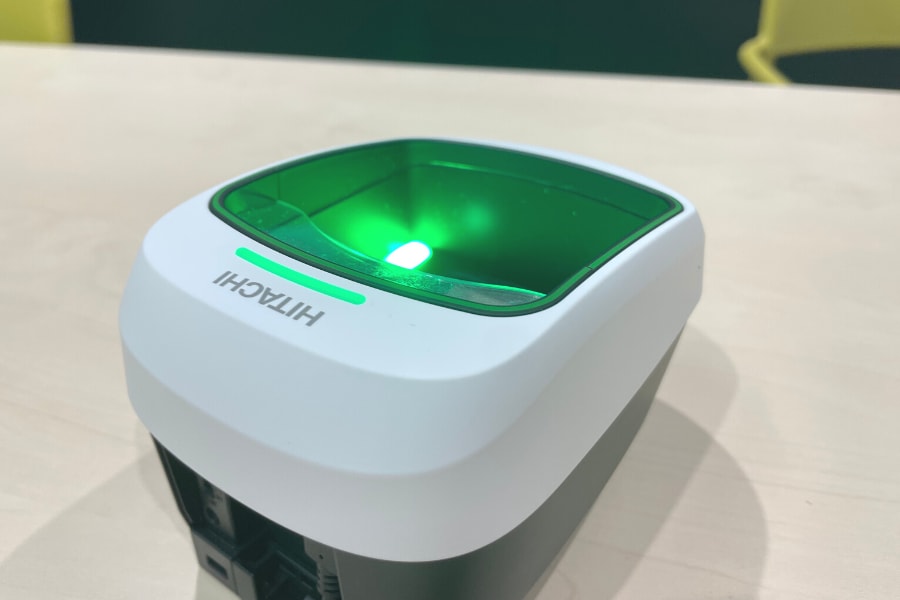
The questionnaire results also revealed new user needs.
According to Kiyofuji: "We heard from users that they wanted support for credit card payment and for linkage with point cards so as to further reduce inconvenience and work during check-in. Since we already provide a credit card payment service that uses biometric authentication, for the future I'd also like to study tie-ins with such existing services."
In addition to the hotel industry and membership facilities, this system is also expected to find application in a number of other sectors, such as restaurants, spas, and fitness. Addressing future prospects, Kiyofuji said:
"Until now, the security tool aspect of biometric authentication has been most emphasized. Going forward, however, I believe importance will also be attached to the convenience tool aspect. In the future, I see it contributing to the digital transformation of hotels and membership facilities while also driving further improvements to the user experience by such means as streamlining registration processes."

